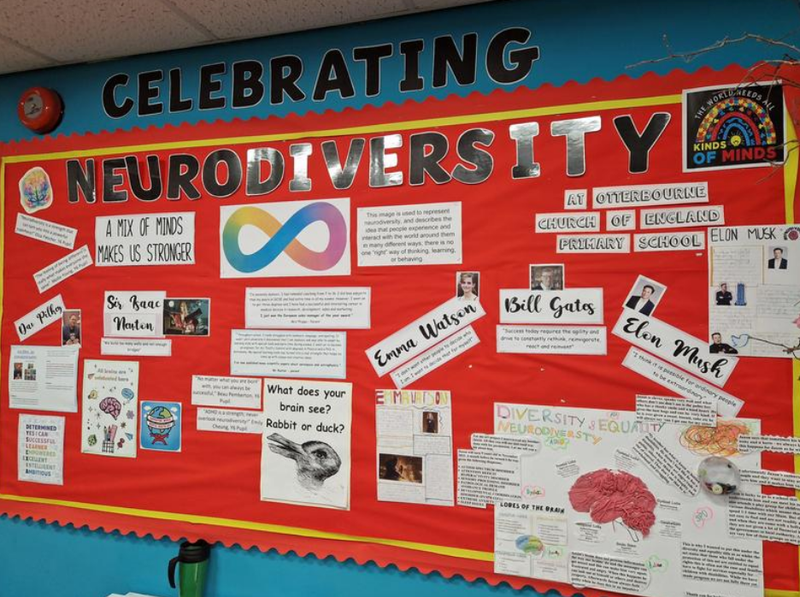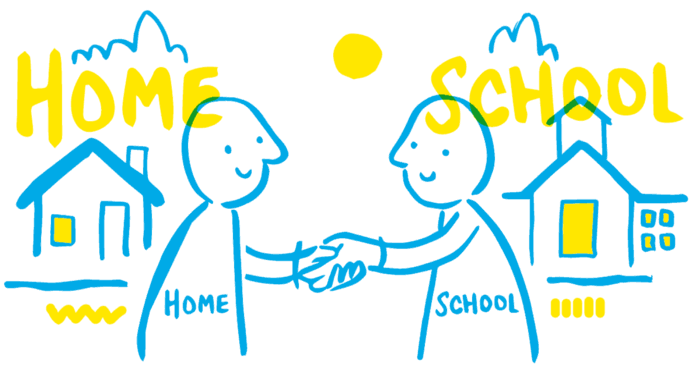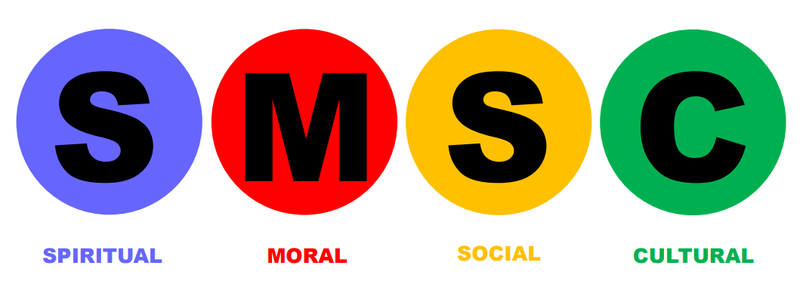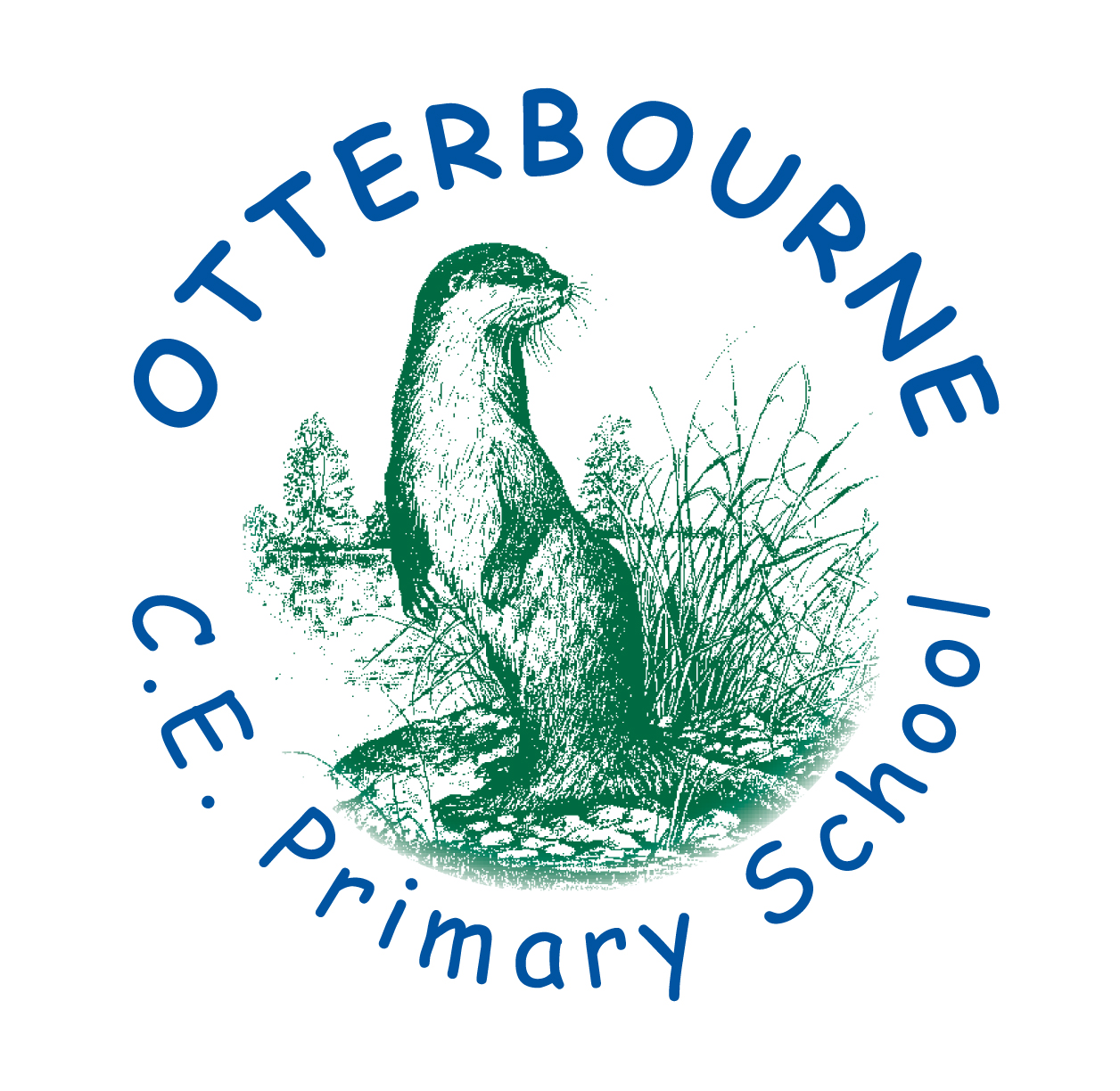Personal Development
At Otterbourne Church of England Primary School we believe that EVERY MINUTE COUNTS.
Personal Development encompasses the holistic growth and well-being of each and every child, fostering their intellectual, emotional, and social capacities. It goes beyond academic achievements, aiming to nurture essential life skills, talents, aspirations and character traits.
At Otterbourne, we are extremely proud of our students and recognise they have a plethora of talent outside of the standard curriculum. Our aim is to promote this wherever possible, through the use of various carefully planned activities which support the three pillars of our curriculum; 'Diversity and Equality', 'Aspiration and Wellbeing' and 'Sustainability and Change'. Our teaching and learning of the National Curriculum is carefully designed to ensure these concepts are covered in a variety of interesting and engaging ways. In addition, we have created a Personal Development programme which extends beyond the academic and prepares the children for success is other areas.

This is equally, if not more important, in our Early Years Foundation Stage. Children’s personal, social and emotional development (PSED) is crucial for children to lead healthy and happy lives, and is fundamental to their cognitive development. Underpinning their personal development at this early age encourage the important attachments that shape their social world. Strong, warm and supportive relationships with adults enable children to learn how to understand their own feelings and those of others. Children in our school are supported to manage emotions, develop a positive sense of self, set themselves simple goals, have confidence in their own abilities, to persist and wait for what they want and direct attention as necessary. Through adult modelling and guidance, they will learn how to look after their bodies, including healthy eating, and manage personal needs independently. Through supported interaction with other children, they learn how to make good friendships, co-operate and resolve conflicts peaceably. These attributes will provide a secure platform from which children can achieve at school and in later life.

Our personal development programme varies year to year. This flexible nature allows us to fine tune to the needs of the children in our school, but may include exhibitions on the children's interests such as science or art. We hold an annual talent show, 'Otterbourne's Got Talent', where children with interest in the arts are able to exhibit their talent in front of an audience of children, parents and governors. We have an extremely well subscribed Drama club, which runs an annual large scale production involving a local secondary school and we also take a large group of children to London each year to perform in Young Voices. We carefully monitor the take up of these events, but particularly for our disadvantaged children to ensure inclusion in every aspect of learning. This equality of opportunity is essential so that all pupils can thrive together, understanding that difference is a positive, not a negative, and that individual characteristics make people unique. It is crucial that each child under our care is given the opportunity and time to shine, regardless of any potential barriers.

In Key Stage 2, and for some younger children, we have created a 'Pupil Parliament'; which consists of 8 councils with responsibilities held by the children, facilitated by staff, with an interest in the subject matter. This includes Year 6 house captains, a school council, an eco-council, a sports council and a wellbeing council. Over the years we have built a strong relationship with our local community, including a very strong link with St Matthews Church, where children attend regular services such as Remembrance. The children are also invited to take part in events in collaboration with Otterbourne Hill (Brendoncare) care home, such as our annual advent event, which provides them with Christmas cheer around the time of the holidays.
Our 'Be Happy, Be Healthy' event is an annual event where children are encouraged to reflect on, and learn about, ways to stay mentally and physically healthy. During this week, we organise a wide range of visitors to provide the children with engaging and enriching learning opportunities. These mainly consist of parent volunteers, but also organised events such as first aid training, dog safety and water safety.

Collaborating with parents is a key part of our Personal Development programme and we use the school community wherever possible to enhance and enrich the children's learning. We hold termly events such as workshops for parents on e-safety, digital wellbeing or more specific areas which may be affecting their children such as anxiety. These workshops are run by parents, for parents, which we find particularly useful for effective communication between home and school.
Ultimately, our aim is to empower students to navigate challenges, build positive relationships, and cultivate a strong foundation for lifelong learning and success.
SMSC at Otterbourne Church of England Primary School

Through our thorough PSHE curriculum and our Personal Development programme, we promote Spiritual, Moral, Social and Cultural development.
Spirituality:
- Ability to be reflective about their own beliefs (religious or otherwise) and perspective on life
- Knowledge of, and respect for, different people’s faiths, feelings and values
- Sense of enjoyment and fascination in learning about themselves, others and the world around them
- Use of imagination and creativity in their learning
- Willingness to reflect on their experiences
Moral:
- Ability to recognise the difference between right and wrong and to readily apply this understanding in their own lives, and to recognise legal boundaries and, in doing so, respect the civil and criminal law of England
- Understanding of the consequences of their behaviour and actions
- Interest in investigating and offering reasoned views about moral and ethical issues and ability to understand and appreciate the viewpoints of others on these issues
Social:
- Use of a range of social skills in different contexts – for example, working and socialising with other pupils, including those from different religious, ethnic and socio-economic backgrounds
- Willingness to participate in a variety of communities and social settings, including by volunteering, cooperating well with others and being able to resolve conflicts effectively
- Acceptance of and engagement with the fundamental British values of democracy, the rule of law, individual liberty and mutual respect and tolerance of those with different faiths and beliefs. They will develop and demonstrate skills and attitudes that will allow them to participate fully in and contribute positively to life in modern Britain
Cultural:
- Understanding and appreciation of the wide range of cultural influences that have shaped their own heritage and that of others
- Understanding and appreciation of the range of different cultures in the school and further afield as an essential element of their preparation for life in modern Britain
- Ability to recognise, and value, the things we share in common across cultural, religious, ethnic and socio-economic communities
- Knowledge of Britain’s democratic parliamentary system and its central role in shaping our history and values, and in continuing to develop Britain
- Willingness to participate in and respond positively to artistic, musical, sporting and cultural opportunities
- Interest in exploring, improving understanding of and showing respect for different faiths and cultural diversity and the extent to which they understand, accept, respect and celebrate diversity. This is shown by their respect and attitudes towards different religious, ethnic and socio-economic groups in the local, national and global communities
British Values

At Otterbourne Church of England Primary School, we value the diversity of backgrounds of all pupils, families and the wider school community. We take our responsibility very seriously to prepare children for life in modern Britain. The Department for Education states that there is a need:
“To create and enforce a clear and rigorous expectation on all schools to promote the fundamental British values of democracy, the rule of law, individual liberty and mutual respect and tolerance of those with different faiths and beliefs”.
We are a richly diverse school, and we appreciate that these values are commonly shared amongst all the cultures and religions celebrated in our school. We therefore ensure that these values are introduced, discussed and lived out through the ethos and work of the school. All curriculum areas provide a vehicle for furthering understanding of these concepts, and, in particular, our RE and PSHE lessons plus Collective Worship provide opportunities to deepen and develop understanding. Children embrace these concepts with enthusiasm and demonstrate a good understanding of their application to their own lives.
The Department for Education defines British Values as follows:
- Respect for democracy and support or participation in the democratic process
- Respect for the basis on which the law is made and applies in England
- Support for equality of opportunity for all
- Support and respect for the liberties of all within the law
- Respect for and tolerance of different faiths and religious and other beliefs
We help the children to remember the British Values through the helping hand model:

